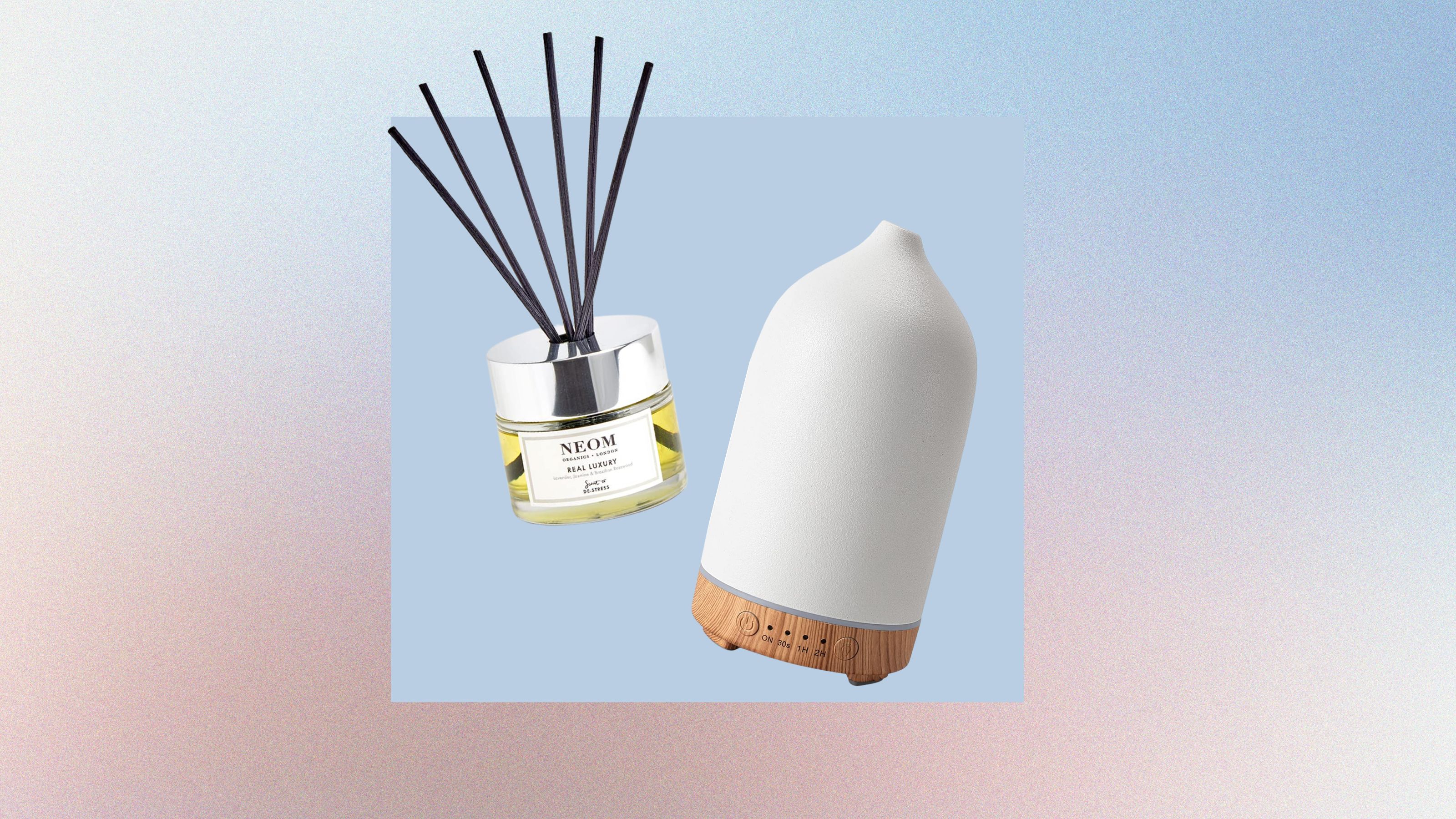Reed diffuser vs oil diffuser — what’s the difference and which is best?
FYI, both are totally scent-sational


Okay, confession time: I am somewhat crazy about the scent of my home and like to ensure that my space always smells as glorious as possible. I think the low-key obsession that I clearly have comes from being a pet parent and constantly worrying that I’ve gone “nose blind."
Hence, my need to stock my home with reed diffusers, scented candles, and a (bordering on unhealthy) amount of essential oil diffusers. I *really* should stop buying them, and yet I can’t.
With a seriously hefty stash of both types of diffusers — and plenty of practice testing them out — I'm practically a pro on all the details. Trust me, I take fragrance very seriously.
Confused by what the differences are between reed diffusers and essential oil diffusers? Want to know how they work and what the pros and cons are of each? Don’t panic — I’ve got you covered.
What’s the difference between a reed diffuser and an essential oil diffuser?
Let’s start by looking at the differences between the two.
What is a reed diffuser?
Think of reed diffusers as being kinda like a more natural version of an air freshener. Sounds odd but, hear me out. Usually, reed diffusers — like this NEOM one from Amazon that I have at home — feature a vessel (normally a vase or a bottle) that’s filled with a fragrance oil (this is combination of essential oil and a carrier solution). The other key feature are the natural rattan reed sticks that are inserted into the liquid and stick out the top of the bottle. The idea being that these reeds will absorb the fragrance oil from the bottom of the bottle, the oil will then travel up the reeds and the scent will diffuse into the air (similar to how an air freshener constantly diffuses scent into the air).
What is an electric essential oil diffuser?
Whereas, electric essential oil diffusers — like this one from NEOM (also available at Amazon) that I am obsessed with — are either battery-powered or plugged into a power outlet and diffuse essential oils into the air with the use of steam or heat. Unlike reed diffusers, there are a few different types of electric essential oil diffusers. These are nebulizing diffusers, ultrasonic diffusers, evaporative diffusers, and heat diffusers, and each works differently but does the same thing.
Get small space home decor ideas, celeb inspiration, DIY tips and more, straight to your inbox!
What are the pros and cons of reed diffusers?
Pros:
- Low maintenance and easy to set up
- Don’t require electricity
- A constant stream of scent
- A great budget-friendly option
Cons:
- Unable to control the level of fragrance being released
- Lots of wasted scent as no ‘on’ or ‘off’ switch
What are the pros and cons of essential oil diffusers?
Pros:
- Easy to control level of scent
- Some electric diffusers have timers for easier scent control
- Better control over intensity and duration of fragrance
Cons:
- Uses electricity (or needs batteries) to work
- More expensive than a reed diffuser
- Quality differs between different makes and models of electric diffusers
Reed diffuser vs electric essential oil diffuser: which is best for what?
As someone who has both in her home, I can tell you that reed diffusers and electric essential oil diffusers both have their advantages and disadvantages.
For a constant refreshing (and somewhat more subtle) scent, reed diffusers — as long as they’re maintained and cared for properly — can work like a dream.
Plus, reed diffusers don’t require access to an electrical outlet, so you can literally pop them anywhere. Personally, I like to put reed diffusers in my bathrooms, in my entryway, and dotted on shelves and windowsills throughout the house.
Whereas, an essential oil diffuser needs to be positioned near a power outlet (unless it’s battery operated), which means that they’re perhaps not as versatile as a reed diffuser.
But, what these electrical diffusers can offer is a boost of scent at the times that you feel your home needs it most. For instance, I usually pop on my diffusers when I have guests coming over, if I need to relax, or just if I feel my home is in need of a little refresh.

Hi! I’m Beth Mahoney and I’m a former staff writer at Real Homes. I’ve been a journalist for the national press for the past six years, specializing in commerce and trends-related lifestyle articles, from product reviews and listicles to guides and features. With an eye for pretty things (think: quirky wall prints, scalloped edge furniture, and decadent-looking tableware) but a limited budget, I love nothing more than a bargain buy.